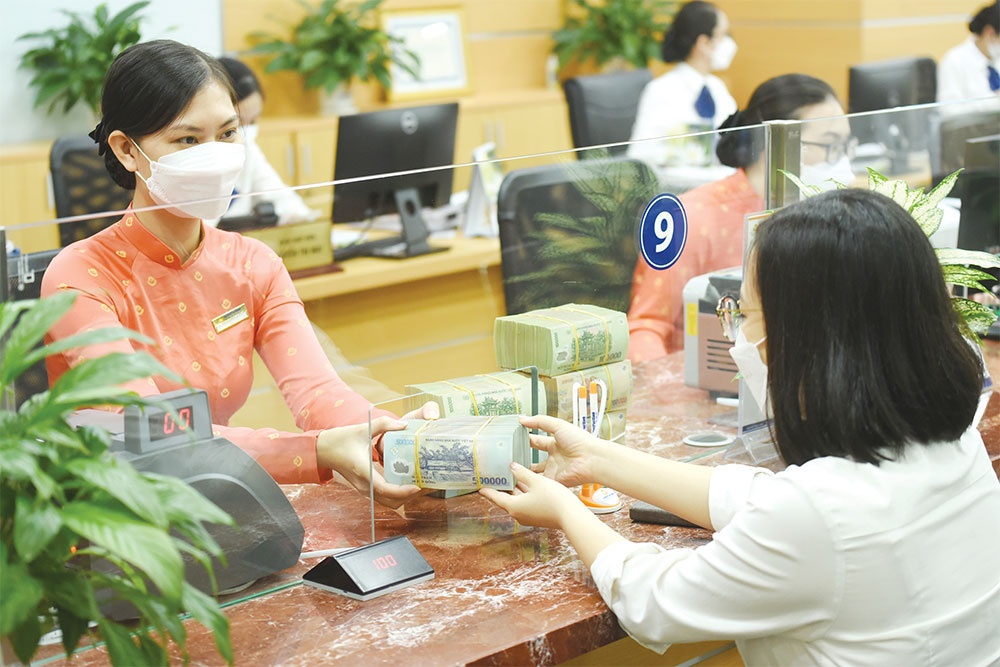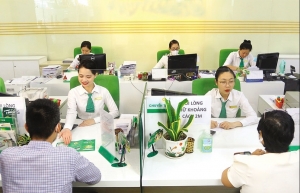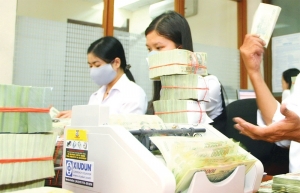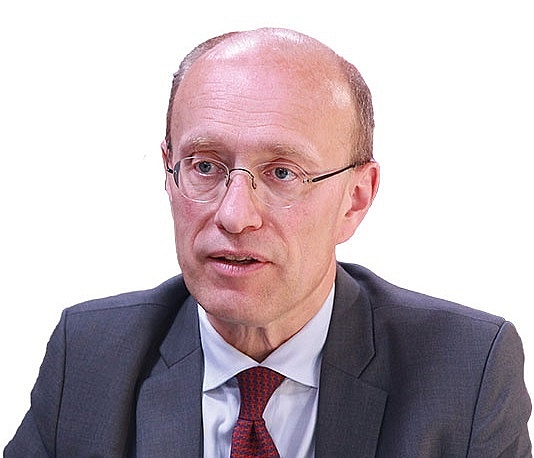Lenders look further afield for recruitment
Vietnam is experiencing a shortage of domestic employees in mid and high-level management positions, so is looking overseas to recruit, according to a new report.
 |
| Lenders look further afield for recruitment- illustration photo |
The Navigos Group report on the recruitment demand for mid- and senior-level personnel in Vietnam in the second quarter of 2022 said that there is a lack of Vietnamese candidates for jobs that require deep expertise. The report takes the banking industry as a prime example, looking at the ongoing demand for digital banking and risk management.
The recruitment market in this field is increasingly heating up with a series of joint-stock commercial banks, especially the big four of Agribank, BIDV, VietinBank, and Vietcombank, continuously recruiting in extremely high numbers. The first half of 2022 saw a 20 per cent increase in job postings compared to the same period in 2021.
The banking industry in recent years has been undergoing a digital transformation race to stay in line with international practices. This has led to a great demand for recruitment in IT, data, and solution architecture.
According to a Vietnam IT human resources market report in 2021 by TopDev, the country has had a shortage of IT human resources for the past five years. In 2021, Vietnam needed 450,000 IT personnel, while the total number of programmers was 430,000, meaning 20,000 positions could not be filled.
This shortfall comes from the disparity between the programmers’ qualifications and real-world business requirements. The report assessed that only about 30 per cent of students majoring in IT met the skills and requirements needed for businesses. This is causing financial institutions to look overseas.
In July, Techcombank organised an overseas talent roadshow in both Singapore and London. This was the first time a Vietnamese bank had conducted an international recruitment campaign targeting Vietnamese talent living and working abroad.
Explaining the choice, a Techcombank representative said, “Candidates joining Techcombank from these markets, in addition to decent remuneration, will be given the best conditions to develop available international experiences, thereby contributing to the growth of Techcombank and Vietnam’s banking industry.”
The campaign has been considered a success for Techcombank, as there has been sufficient interest from overseas candidates.
After this campaign, Techcombank plans to expand its search for international human resources in other markets. In 2021, the bank recruited about 4,300 new employees, of which 700 were in the technology, digital, and data sectors. With the bank’s current digital transformation strategy, these numbers are expected to almost double in the near future.
Likewise, MB Bank and the Association of Vietnamese Youth and Students in the United States (AVSPUS) in August established a collaboration for the bank to recruit Vietnamese talent in the US.
MB also plans to collaborate with other organisations to jointly coordinate and sponsor events, seminars, knowledge-sharing, skills exchange and provide AVSPUS with the bank’s financial services.
“This collaboration is opening up new horizons for both sides,” said Le Xuan Vu, member of MB’s Board of Management. “With a global ambition, MB is confident to accompany AVSPUS in delivering top-notch, world-class services to the young Vietnamese population in the US. The bank aspires to cement its position by deploying talent dynamically and building a strong, solid future workforce through the partnership.”
Doan Thi Minh Phuong, an AVSPUS representative, also expressed enthusiasm for the possibilities the partnership would bring.
“For the first time, we have witnessed cooperation between a joint-stock commercial bank here and an association in a foreign country,” Phuong said. “This not only demonstrates MB’s enthusiasm for overseas talent and the Vietnamese community, but is also a significant step forward in the bank’s brand promotion in developed markets like the US.”
The domestic market is also witnessing a wave of international students returning home upon graduation. Elena Nguyen, head of HR at a financial consulting company in Hanoi, said that in the past few years, the company had received many applications from returning international students for a wide range of positions.
“Many foreign-invested groups are willing to pay high salaries for students studying abroad, along with attractive promotion opportunities as these students have a wide range of knowledge and broad perspectives. Compared to employment abroad, offers from Vietnam are sometimes even more attractive,” she said.
| Jens Lottner-CEO, Techcombank
When we started digital transformation two years back, we had maybe 450-500 people in our IT Department. Probably at the end of the year, we will have 1,300 or 1,400. As we brought in many people, they need to organise themselves with the rest of the organisation because no one is doing things in isolation. From an organisational structure standpoint, we work in multifunctional teams with people in business, technology, and legal. And we ask them to solve problems jointly. So while we still have blocks like any traditional bank, we probably have around 1,000 people working on these projects, and that’s a way for digital transformation to accelerate. Right now, everyone is trying to get into Vietnam because it’s a high-growth market with a young population. International recruitment is a way for us to diversify our staff base. |
 | Lenders reinforcing presence with bond issuance Commercial banks, with participation from local and foreign-backed institutions, are engaging in bond issuance despite severe regulations placed on this and volatile market conditions. |
 | Lenders juggle with tax info obligations Cybercriminals and the exposure of account information remain significant barriers for all stakeholders, with commercial banks now required to identify and collect holding information of customers to relevant authorities in a bid to fulfil tax obligations. |
 | Lenders contend with interest rates Maintaining steady interest rates is set to be a challenge for Vietnam’s central bank amid unfavourable global events and domestic pressures. |
What the stars mean:
★ Poor ★ ★ Promising ★★★ Good ★★★★ Very good ★★★★★ Exceptional
Themes: Digital Transformation
- Dassault Systèmes and Nvidia to build platform powering virtual twins
- Sci-tech sector sees January revenue growth of 23 per cent
- Advanced semiconductor testing and packaging plant to become operational in 2027
- BIM and ISO 19650 seen as key to improving project efficiency
- Viettel starts construction of semiconductor chip production plant
Related Contents
Latest News
More News
- Cashless payments hit 28 times GDP in 2025 (February 04, 2026 | 18:09)
- SSIAM and DBJ launch Japan Vietnam Capital Fund (February 04, 2026 | 15:57)
- Banks target stronger profits, credit growth in 2026 (February 04, 2026 | 15:43)
- Vietnam on path to investment-grade rating (February 03, 2026 | 13:07)
- Consumer finance sector posts sharp profit growth (February 03, 2026 | 13:05)
- Insurance market building the next chapter of protection (February 02, 2026 | 11:16)
- NAB Innovation Centre underscores Vietnam’s appeal for tech investment (January 30, 2026 | 11:16)
- Vietnam strengthens public debt management with World Bank and IMF (January 30, 2026 | 11:00)
- Corporate bond market poised for stronger growth cycle (January 28, 2026 | 17:13)
- Vietnam's IPO market on recovery trajectory (January 28, 2026 | 17:04)


 Tag:
Tag:




















 Mobile Version
Mobile Version